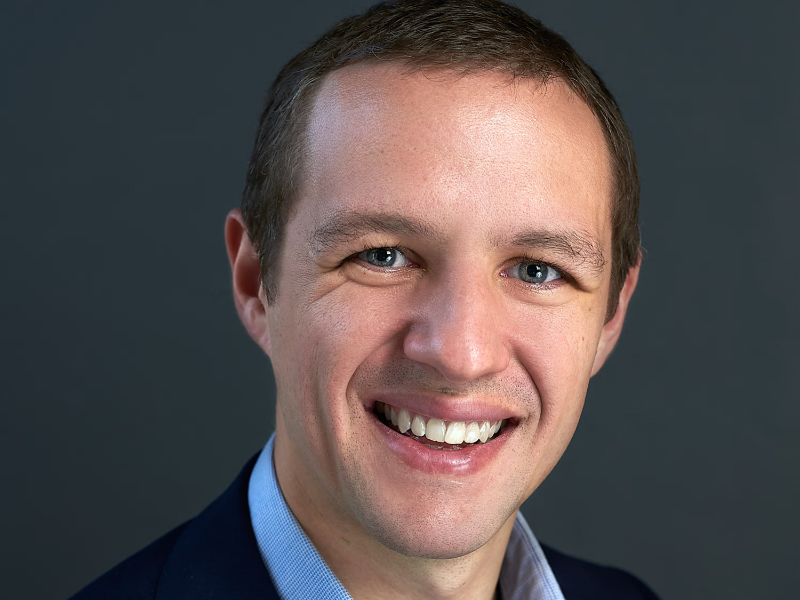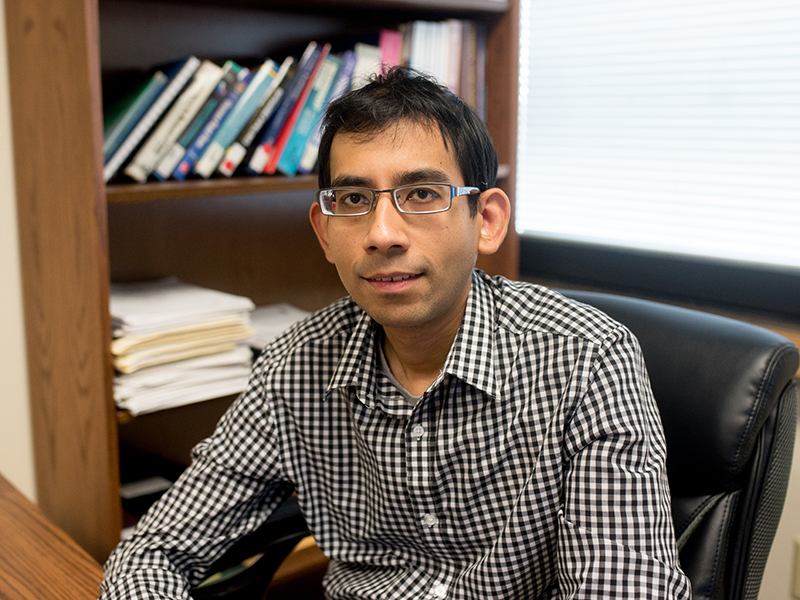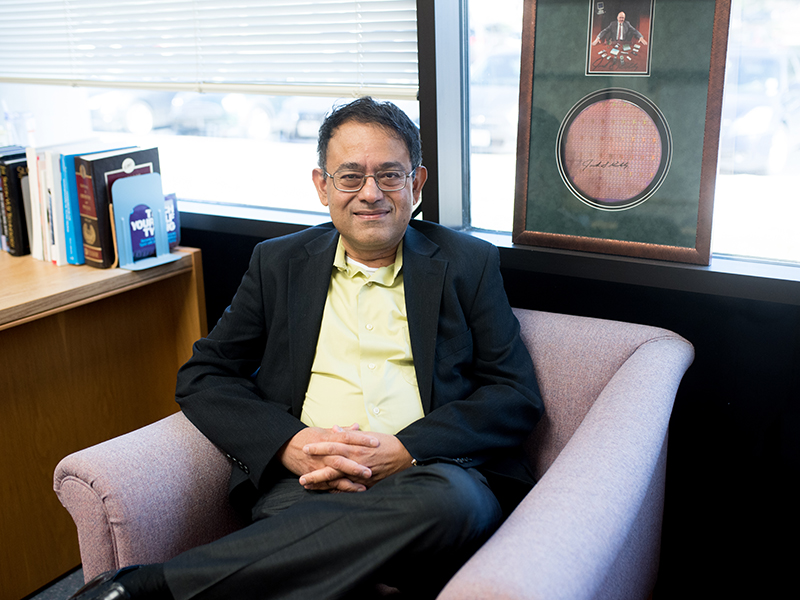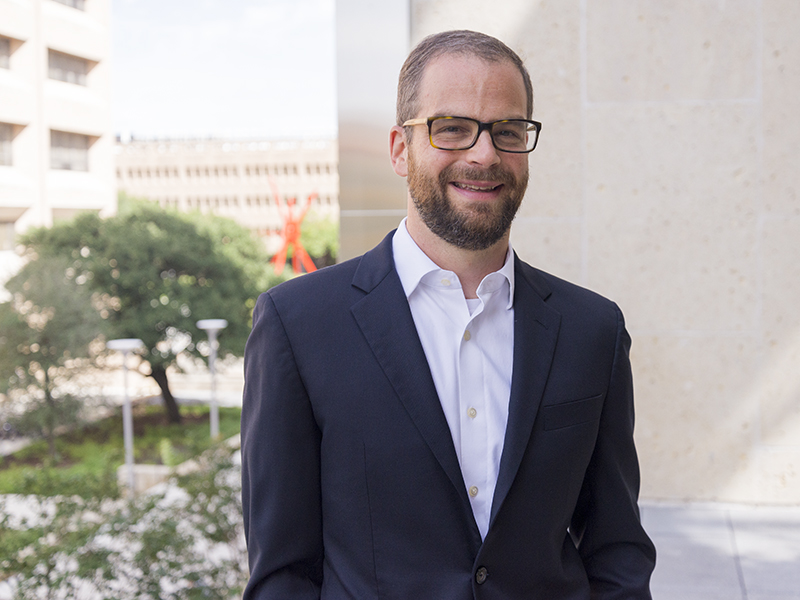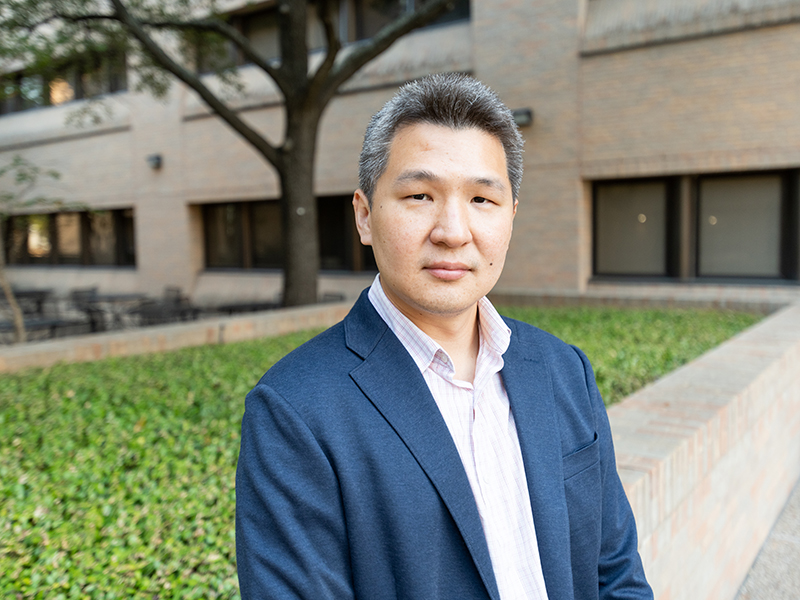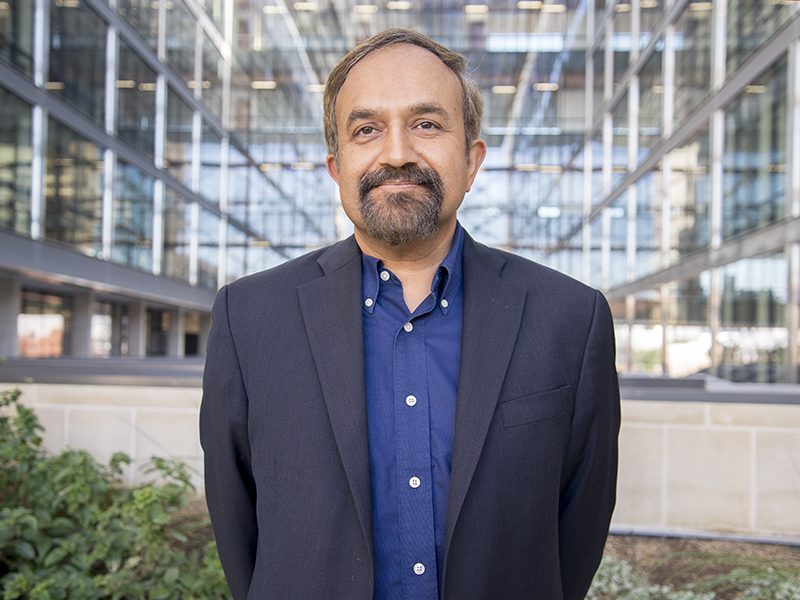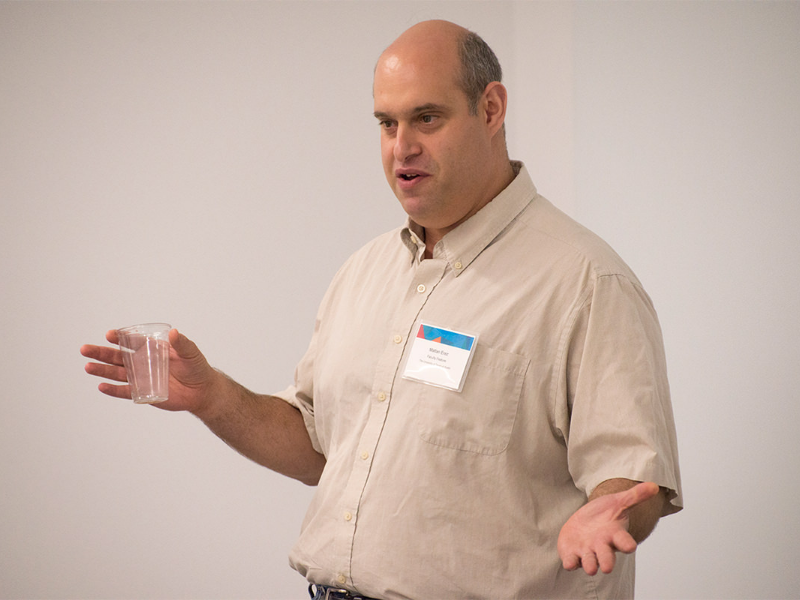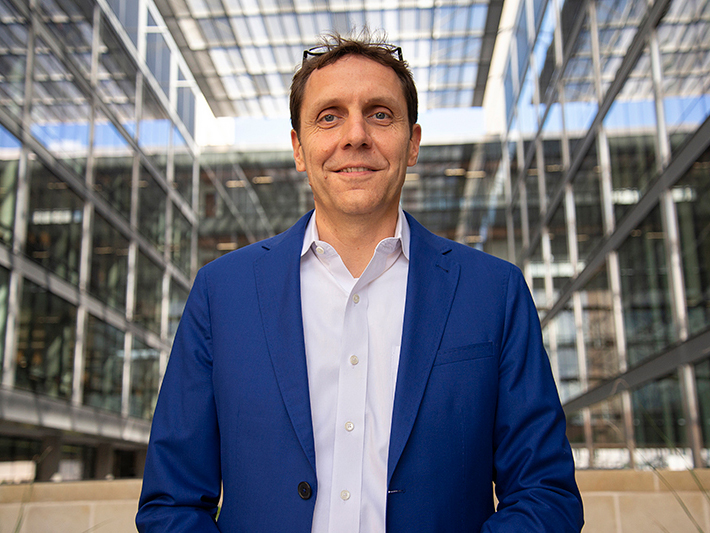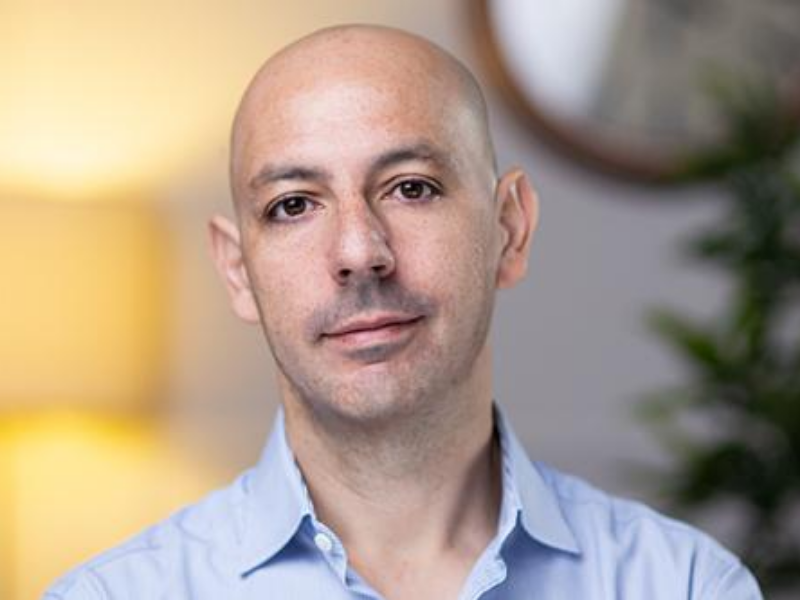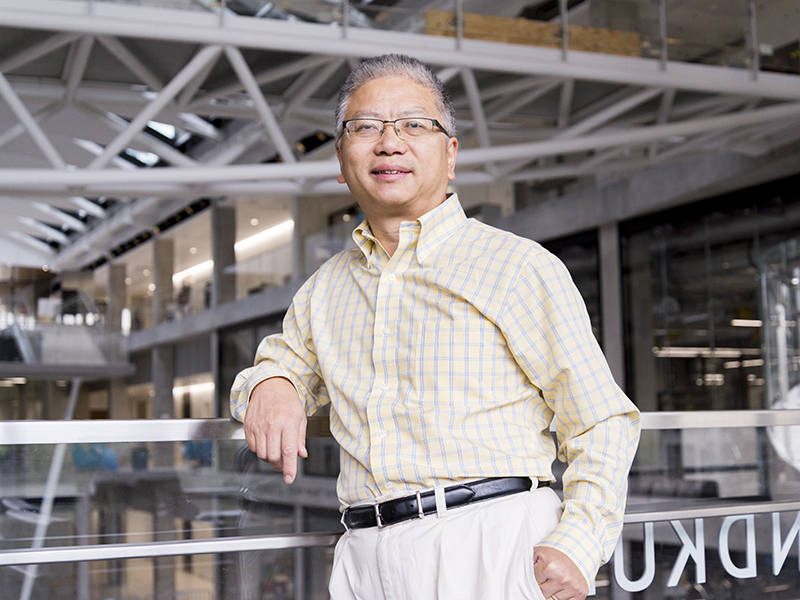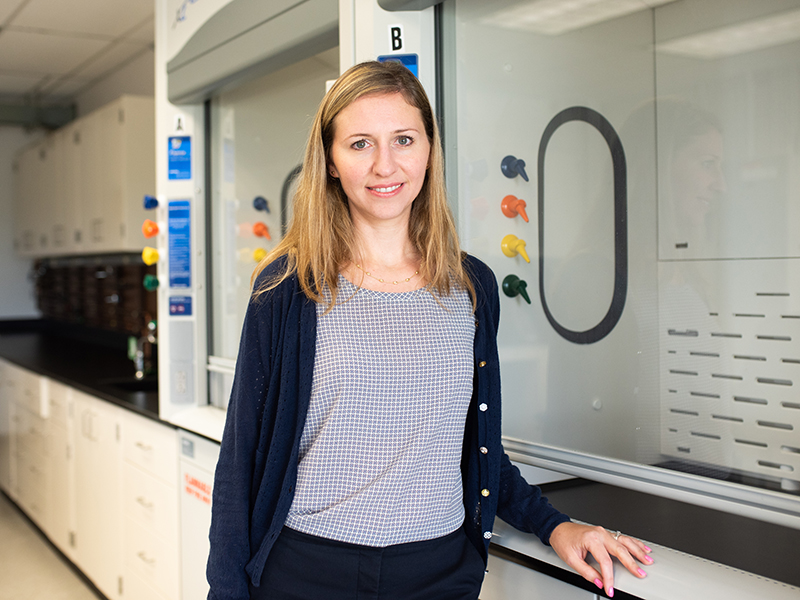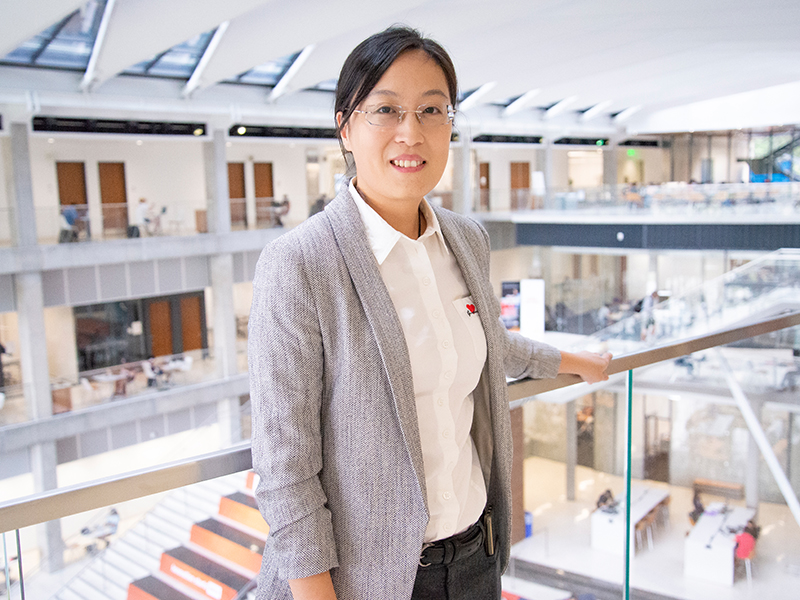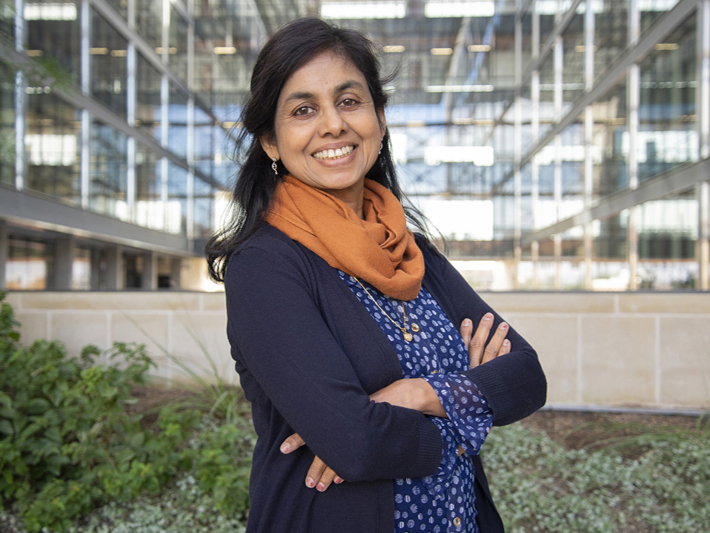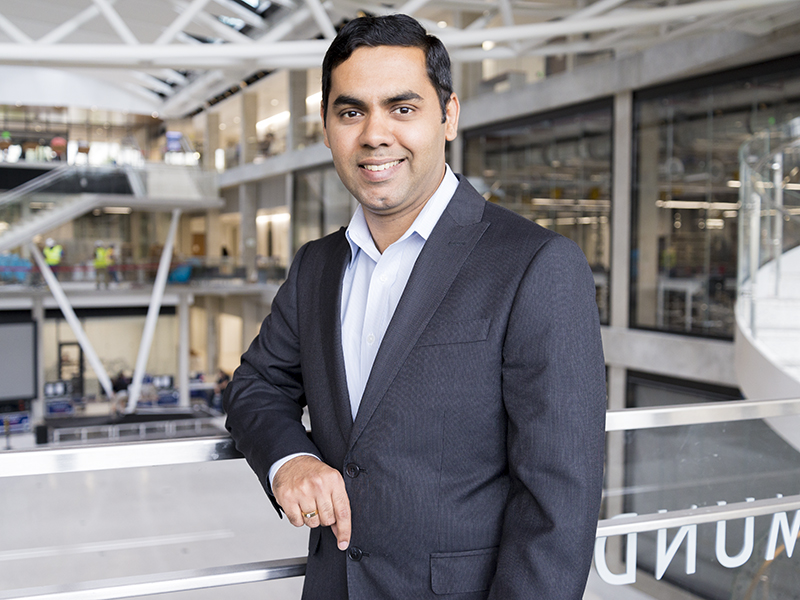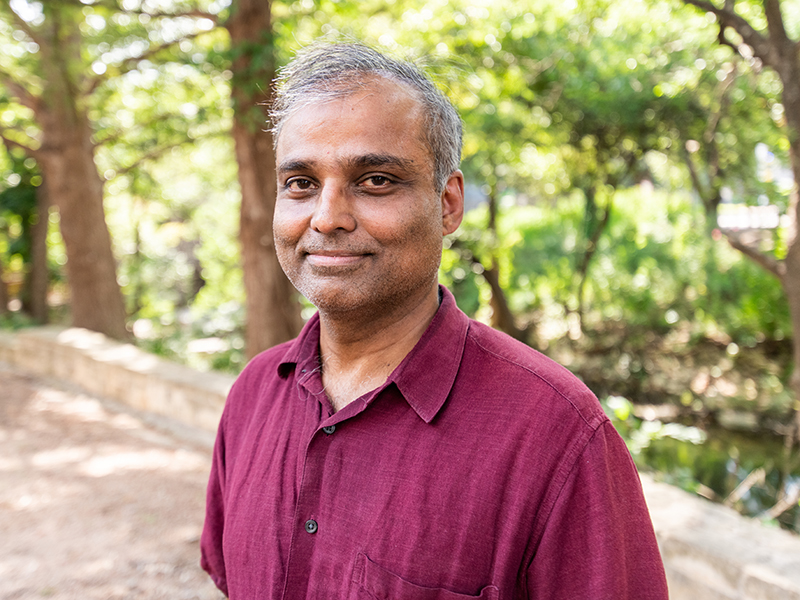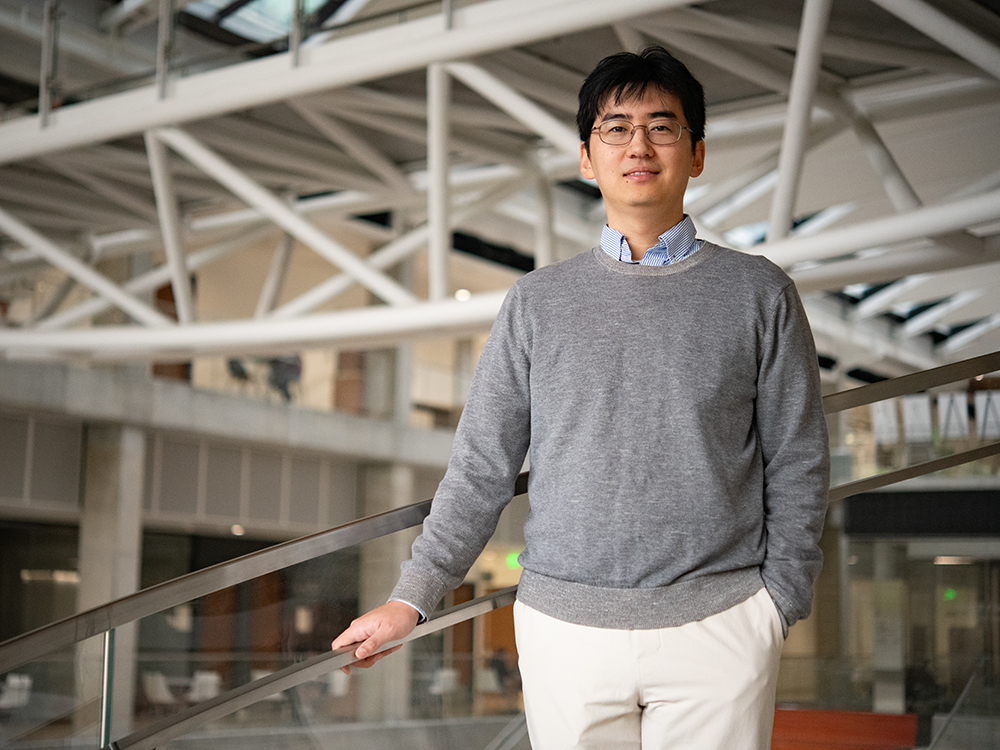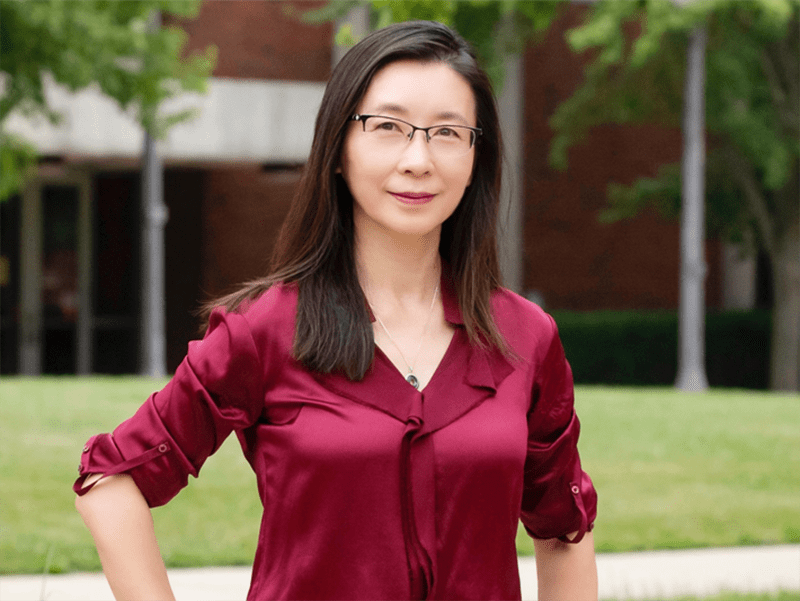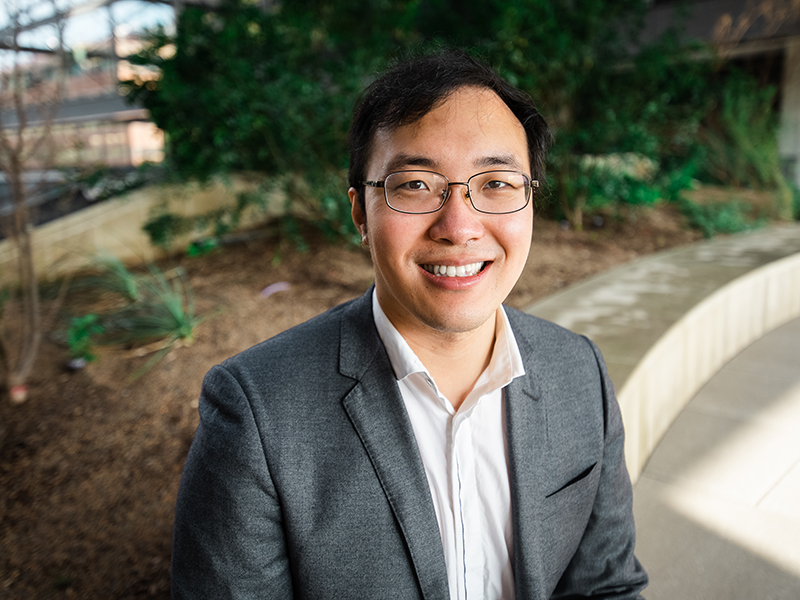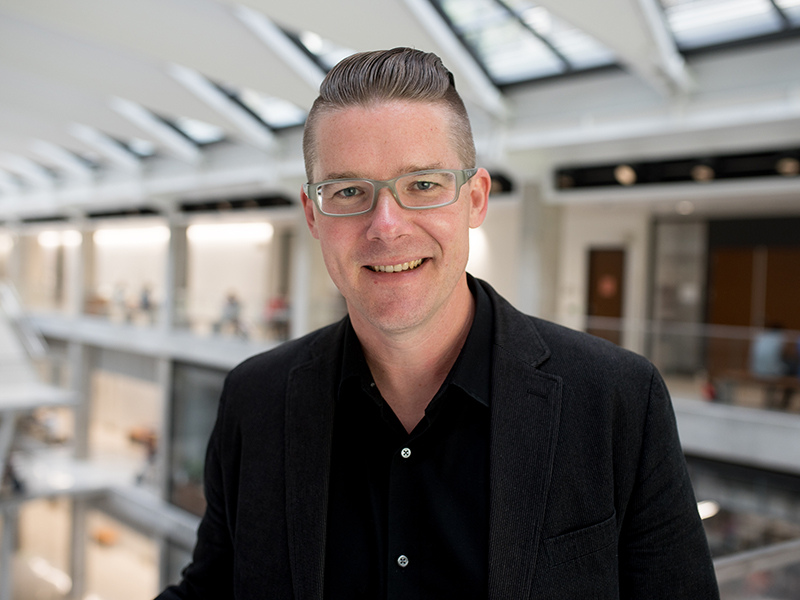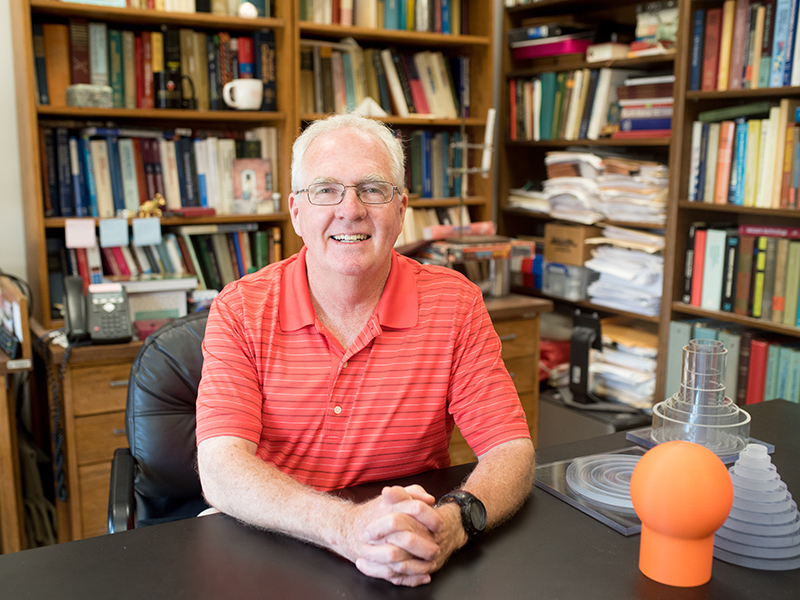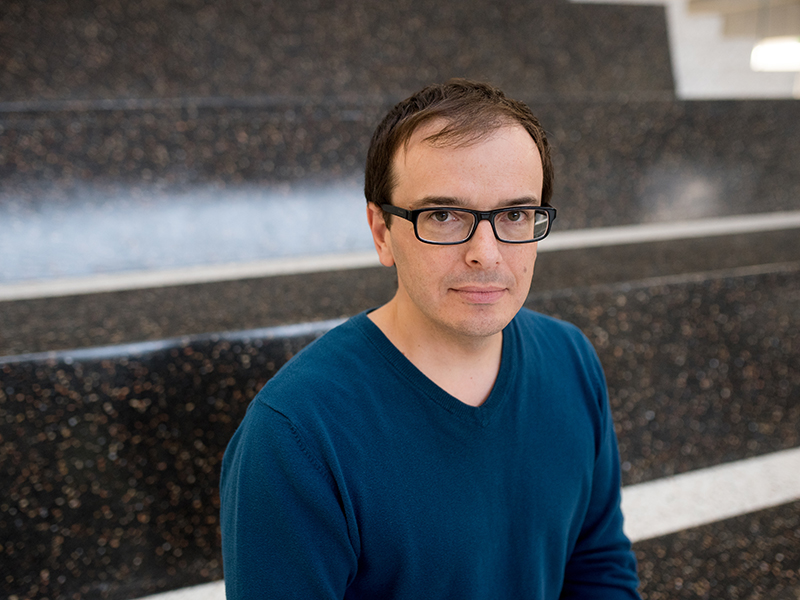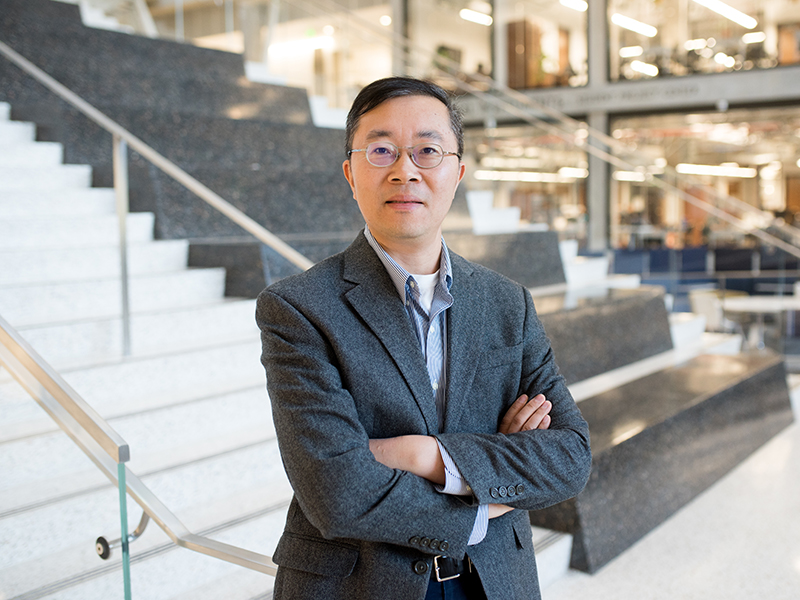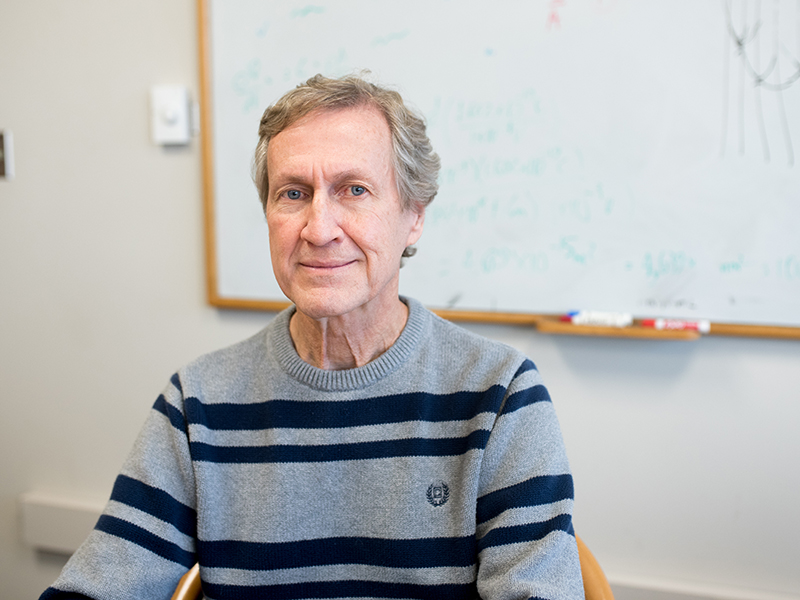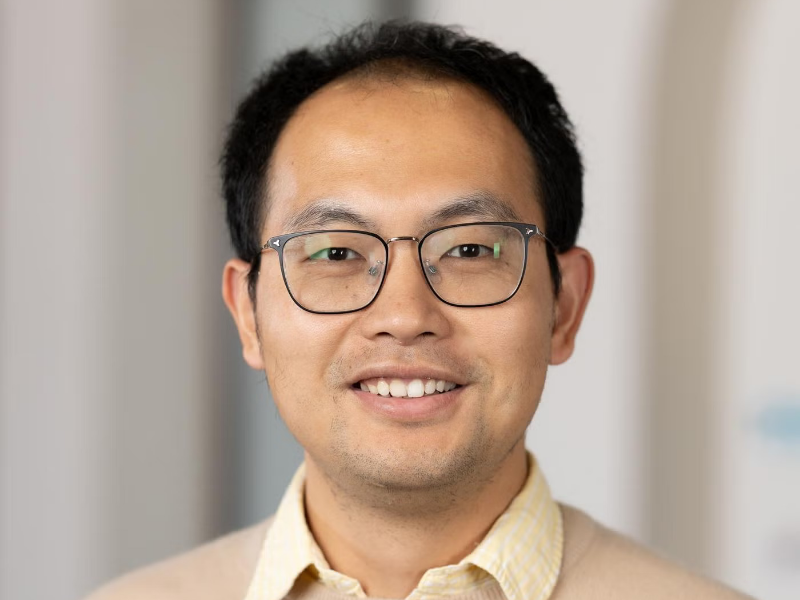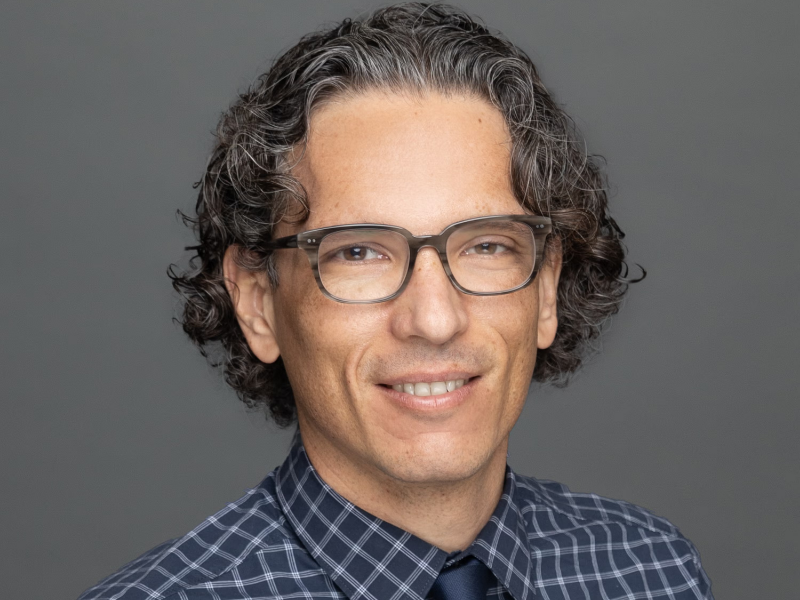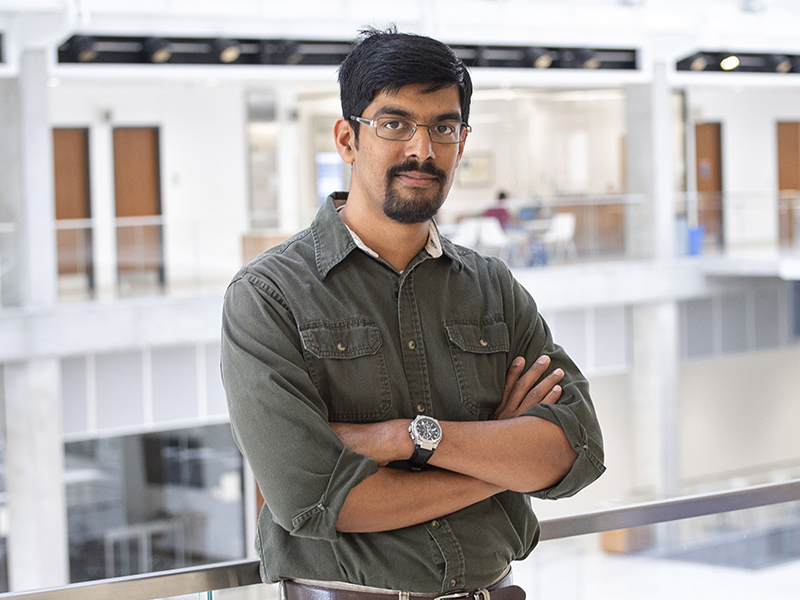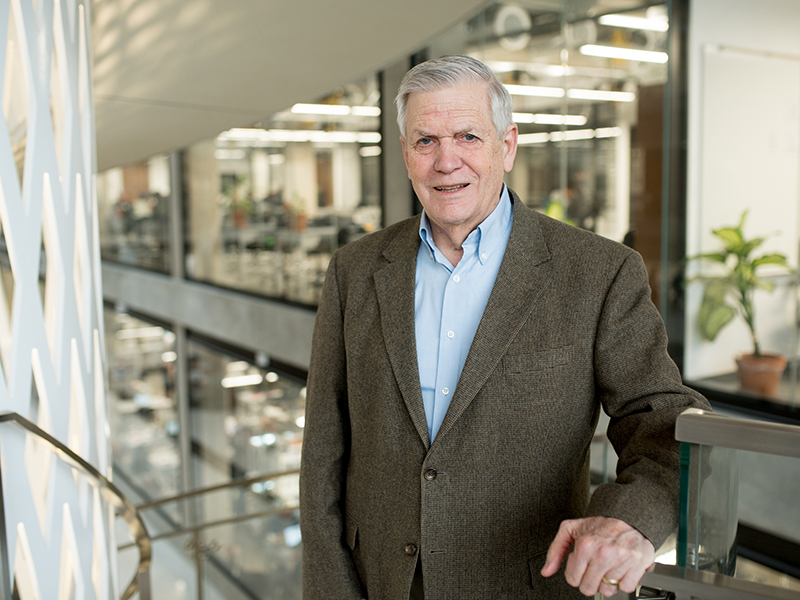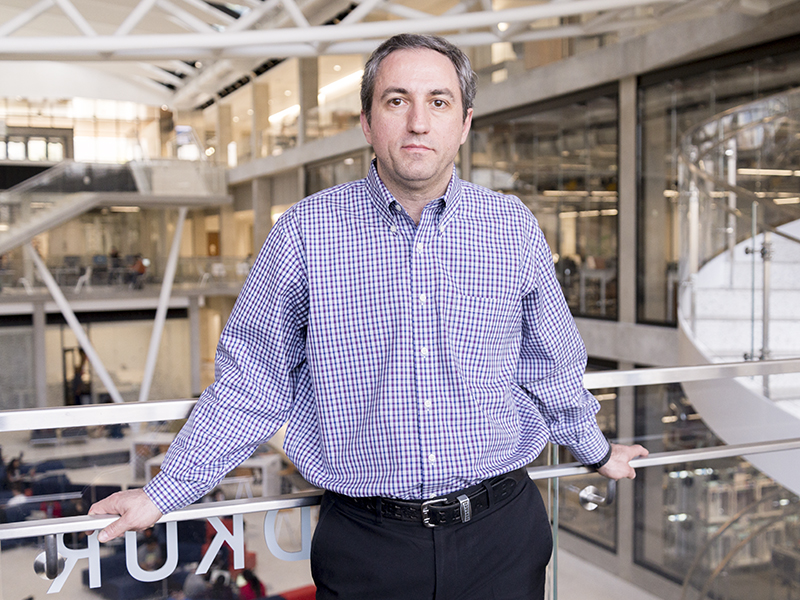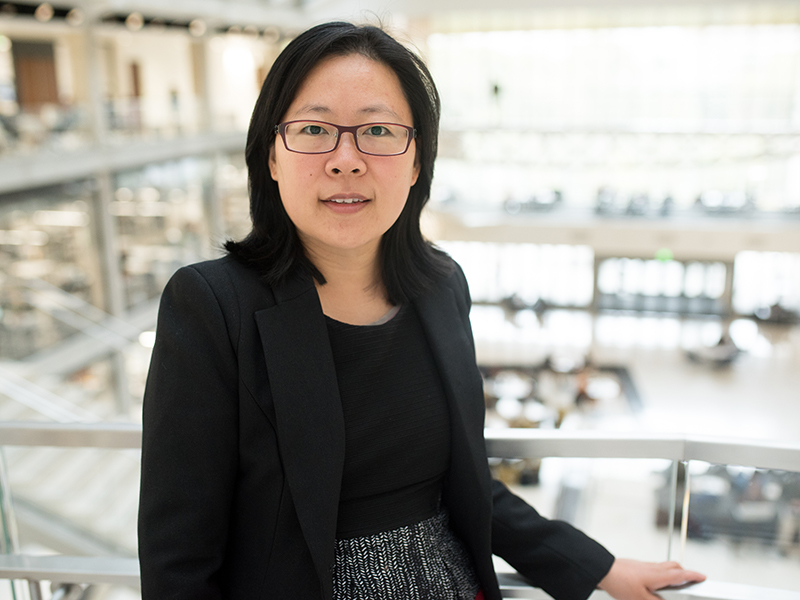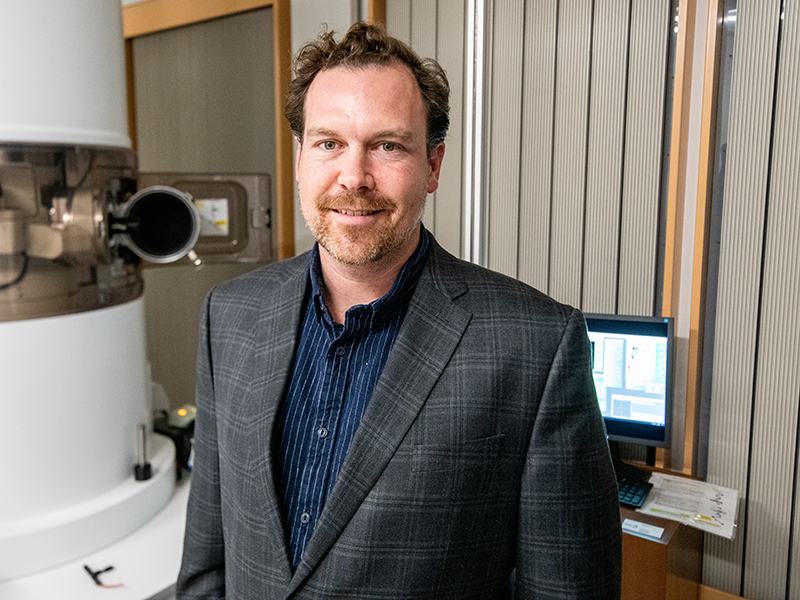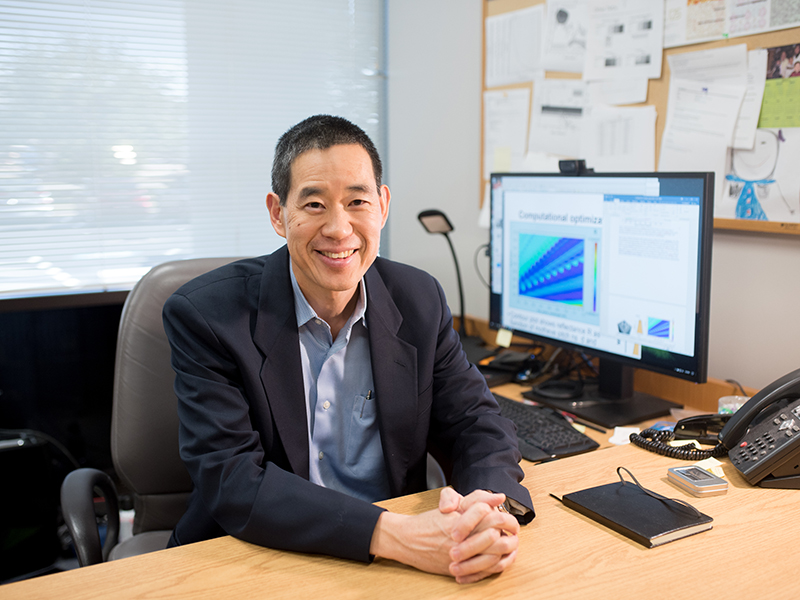Master’s of Semiconductor Science and Engineering
The University of Texas Semiconductor Science and Engineering Graduate Program stands out as the only in-person master’s degree program at a top-10 nationally ranked engineering school exclusively dedicated to semiconductors. It offers students the opportunity to work in real-world cleanrooms alongside industry partners.
The program prepares students to enter the semiconductor workforce in:
- semiconductor manufacturing
- semiconductor device design
- semiconductor circuit and system design
- semiconductor metrology
- semiconductor packaging
- heterogeneous integration
Graduates of this program will develop a deep understanding of the science of semiconductors and how to engineer and manufacture devices and systems around these core disciplines. Students will train to investigate their own research projects to help them become team leaders and innovators in corporations that have semiconductor-centric applications. This degree focuses on the linkage between fundamental science, engineering disciplines and research. Graduates of the program will be well prepared to work across disciplines and overcome the inherent challenges faced by the semiconductor industry today.
This Master of Science degree is a collaboration between the Cockrell School of Engineering and the College of Natural Sciences at the University of Texas at Austin. It is backed by industry-leading companies that sponsor students and research within the program.
This program offers students a chance to develop hands-on skills in designing semiconductors and utilizing industrial-scale semiconductor manufacturing equipment. It allows students to work on industrially relevant research problems with UT faculty members and industry sponsors.
According to the Semiconductor Industry Association, more than 31,000 new masters-level semiconductor jobs will need to be filled by 2030. About 40% of those are at risk of going unfilled due to a lack of people with the necessary training and skill sets.
Graduates of this program will acquire in-demand knowledge and skills such as:
- An understanding of the theories underlying the multidisciplinary areas of semiconductor science and engineering
- Insight into the function of semiconductor devices
- Comprehension of the properties of semiconducting materials at the atomic and nanometer level
- Familiarity with standard semiconductor fabrication and metrology equipment
- Hands-on experience working in semiconductor cleanrooms
- Modern computational and data analysis skills required to work in the semiconductor industry
- Experience performing independent research and writing technical reports
- The ability to contribute constructively to multidisciplinary teams using team engineering principles and methods
This program provides students with a connection to the semiconductor industry through:
- The opportunity to work on industry-sponsored projects with UT faculty and industry representatives
- Coursework that continually exposes students to new technology development and needs in the semiconductor industry
- Summer internship opportunities at member companies for students in the program
- A regular seminar series of industry experts in semiconductors
- Access to a network of UT alumni working in the semiconductor industry
Curriculum Degree Requirements
The semiconductor science and engineering degree requires 30 hours of coursework, including a master’s report writing course. All students admitted into the program take three core courses (Introduction to Semiconductors, Semiconductor Processes and Semiconductor Devices) and are admitted into one of four potential tracks for further specialization.
- Semiconductor Manufacturing
This track focuses on gaining a fundamental understanding of semiconductor manufacturing processes and tools and hands-on experience using those tools. Required laboratories in this track include semiconductor manufacturing, where students will gain experience with standard semiconductor fabrication methods such as wafer cleaning, spin coating, photolithography, resist development, wet and dry etching, metal deposition, chemical vapor deposition, ion implantation, annealing and wafer bonding, as well semiconductor metrology and characterization, where students will gain experience with common semiconductor metrology methods such as profilometry, optical microscopy, scanning electron microscopy, atomic force microscopy, ellipsometry, interferometry and electrical probing. Electives in this track include courses focused on analysis, modeling and control of semiconductor manufacturing processes, ultra-large-scale integration techniques, optical and machine tool design for semiconductor equipment, plasma processing, lithography and practical metrology methods. - Circuits and Systems
This track focuses on developing the knowledge and skills to design semiconductor circuits and systems. Required laboratories in this track include very-large-scale integration (VLSI) circuit design, where students will explore complementary metal oxide semiconductor (CMOS) technology; static and dynamic CMOS combinational and sequential circuits; design of datapath elements; performance, power consumption, and testing and the use computer-aided design (CAD) tools for layout, timing analysis, synthesis, physical design and verification, as well as analog integrated circuit design where students will explore the analysis and design of analog integrated circuits; transistor models and integrated circuit technologies; layout techniques; noise; mismatches; current mirrors; differential amplifiers; frequency response and compensation; feedback and stability; nonlinear circuits; voltage references; and operational amplifiers using state-of-the-art CAD tools for design, simulation, and layout. Electives in this track include application-specific integrated circuit design, radio frequency integrated circuit design, power management design, physical design automation and optimization, system-on-chip design, embedded system design, semiconductor memory design and computer architecture. - Heterogeneous Integration
This track focuses on gaining a fundamental understanding of advanced packaging and heterogeneous integration for semiconductor manufacturing. Required laboratories in this track include semiconductor manufacturing, where will gain experience with common semiconductor fabrication methods such as wafer cleaning, spin coating, photolithography, resist development, wet and dry etching, metal deposition, chemical vapor deposition, ion implantation, annealing and wafer bonding, as well semiconductor metrology and characterization, where students will gain experience with common semiconductor metrology methods such as profilometry, optical microscopy, scanning electron microscopy, atomic force microscopy, ellipsometry, interferometry and electrical probing. Electives in this track include courses focused on microelectronics packaging techniques, thermomechanical issues in packaging, reliability-related aspects of packaging, thermal management conditions, packaging materials, integration of heterogeneous chiplets, thin films and interfaces and metalization. - Semiconductor Devices
This track focuses on developing the knowledge and skills necessary to design, fabricate and test new semiconductor devices. Required laboratories in this track include very-large-scale integration (VLSI) circuit design, where students will explore complementary metal oxide semiconductor (CMOS) technology; static and dynamic CMOS combinational and sequential circuits; design of datapath elements; performance, power consumption, and testing and the use computer-aided design (CAD) tools for layout, timing analysis, synthesis, physical design and verification, as well semiconductor metrology and characterization, where students will gain experience with common semiconductor metrology methods such as profilometry, optical microscopy, scanning electron microscopy, atomic force microscopy, ellipsometry, interferometry and electrical probing. Electives in this track include courses focused on optoelectronic devices, semiconductor heterostructures, metal-oxide-semiconductor field-effect transistors (MOSFET), bipolar junction transistors (BJT), thin-film transistors, quantum wires, quantum dots, spintronic devices and emerging 2D devices.
All students in the degree program need to complete two track-dependent laboratory courses and are required to complete a research course (SSE 395: Semiconductor Science and Engineering Research). In addition, all students need to complete three elective courses within their chosen track. These prescribed elective courses can be in Semiconductor Science and Engineering or may be selected from an approved list of courses offered in the Cockrell School of Engineering and the College of Natural Sciences. Finally, all students will conduct independent research and develop a master’s report (SSE 398R) under the supervision of a research advisor who is selected from the Semiconductor Science and Engineering Graduate Studies Committee (GSC) and an industry advisor.
Track 1: Semiconductor Manufacturing
CH 393L – Advanced Physical Chemistry: Elements of Spectroscopy
CH 381M – Advanced Analytical Chemistry
CH 393L – Introduction to Computational Methods in Chemistry
CHE 384T – Nanomaterials Chemistry and Engineering
ECE 396K.8 – Ultra-Large-Scale Integration Techniques
ECE 396K.4 – Synthesis, Growth and Analysis of Electronic Materials
ECE 396K.19 – Plasma Processing of Semiconductors I
ECE 396K.20 – Plasma Processing of Semiconductors II
ME 387R.8 – Practical Electron Microscopy
ME 392Q.13 – Analytics and Control in Semiconductor Manufacturing
ME384Q.3 – Time-Series Modeling, Analysis and Control
ME 397 – Optical Design
ME 392M.9 – Precision Machine Design
PHY 392P – Optical Spectroscopy
Track 2: Circuits and Systems
ECE 382M – ASIC Design Lab –I
ECE 382M – VLSI II
ECE 382M.25 – Radio Frequency Integrated Circuit Design
ECE 382M.12 – Semiconductor Memory Design
ECE 382N.26 – Machine Learning Hardware-Algorithm Codesign
ECE 382M.26 – VLSI CAD and Optimization
ECE 382M.22 – VLSI Physical Design Automation
ECE 382M.20 – System-on-Chip Design
ECE 382N.23 – Embedded System Design and Modeling
ECE 382N.1 – Computer Architecture
ECE 382N.14 – High-Speed Computer Arithmetic
ECE 382V – Hardware Architecture for Machine Learning
ECE 383V – Microwave and RF Engineering
ECE 394 – Power Management Integrated Circuits
Track 3: Heterogeneous Integration
ECE 383P – Optical Communication/ Interconnects
ME381R.7 – Nanoscale Energy Transport and Conversion
SSE385.1 – Advanced Packaging and Heterogenous Integration
SSE385.2 – Microelectronics Packaging and Thermal Management
SSE385.3 – Materials for Semiconductor Packaging and Heterogeneous Integration
SSE385.4 – Failure and Reliability in Heterogeneous Integration
Track 4: Semiconductor Devices
ECE 383P.6 – Semiconductor Optoelectronic Devices
ECE 396K.23 – Semiconductor Heterostructures
ECE 396V – Advanced Semiconductor Nanotechnology
ECE 396K – Thin Film Transistors
ECE 396N.2 – Carbon and 2D Devices
ECE 396N.1 – Semiconductor Nanostructures
ECE 396K.26 – Microelectromechanical Systems
ECE 396V – Quantum Theory of Electronic Materials
ECE 394 – Power Semiconductor Devices
PHY 392Q – Density Functional Theory
PHY 392K – Solid-State Physics I
Application and Admission Requirements
Applications for Fall 2026 open in August 2025.
*Note: All tracks (1, 2, 3 and 4) will be accepting applications for Fall 2026.
- Have a minimum 3.0 (on a 4.0 scale) grade point average (GPA) in junior- and senior-level work and in any graduate work already completed
- Hold a bachelor of arts or science degree in physical sciences (chemistry, physics) or in an engineering discipline from an accredited institution. Applicants with other bachelor’s degrees may be considered on a case-by-case basis. Students who do not have a background that the committee considers satisfactory for the study of semiconductor science and engineering will be required to take preparatory coursework, some of which may be at the undergraduate level. Completion of some coursework may be required before the student begins the work for the graduate degree.
- TOEFL or IELTS (international students only)
- Submit official transcripts from previous colleges or universities
- Statement of Purpose – Make sure you upload your Statement of Purpose and Resume (or CV) when you come to those sections on the application. Your Statement of Purpose should be a summary of your academic and professional goals, as well as a description of the research work you have done in the past, what research work you plan to do as a graduate student at UT, and why you are interested in the semiconductor science and engineering program. Please ensure these documents are edited to your liking before you upload them, for they cannot be deleted once uploaded to your application.
- Three Letters of Recommendation – Make sure you enter the valid e-mail address of each referee you want to submit a recommendation for you when you get to that section on the application. Please use the university domain address for each professor you are requesting a reference. Letters from industry or employers are also acceptable. Once you have completed this application section, a notice will be sent to each referee showing them where to go to complete a recommendation for you using our online system. Three is only the minimum number of recommendations required to accompany your application. You are welcome to add more.
Applications to the M.S. program in semiconductor science and engineering no longer require the submission of GRE scores. Submitting these scores is optional. The admission committee uses a holistic approach to admissions, reviewing all parts of the application to get a picture of each applicant’s academic and professional background, life experiences, interests and goals and fit with our program offerings.
Each program updates and maintains graduate handbook information, which is available in each program’s office and online. Please contact the program with concerns or questions.
Funding
Most students admitted into the program are expected to be supported through fellowships and research assistantships funded by our industrial members. Students financed in this way are expected to work on a research project with the industrial sponsor and a UT faculty advisor. Benefits of this funding include a stipend, paid tuition and fees, and health insurance coverage for the three semesters of the master’s degree program. Financial support is contingent upon satisfactory progress toward the degree and continued availability of funds.
Students who are personally funded or are funded by their employer may also be admitted to the program. If you anticipate self-funding or employer funding to cover your master’s degree, please indicate so in your personal statement.
Other Internal Fellowship Opportunities
All admitted applicants are nominated for institutional recruitment fellowships through the Graduate School and Cockrell School of Engineering. Selected applicants receive notification of these awards in the spring. Currently, the program submits all nominations automatically rather than individuals applying directly.
Fellowship opportunities are available for continuing students from the Graduate School and the Cockrell School of Engineering. The graduate coordinator and adviser will solicit faculty nominations and make submissions each year.
Competitive External Fellowships
Many US agencies offer excellent fellowship opportunities for graduate students in science and engineering. The list below is not exhaustive but includes the most widely recognized science and engineering fellowships. Students are encouraged to apply for multiple fellowships to increase their chances of receiving one.
Faculty
The semiconductor science and engineering master’s degree is a cross-collaborative degree with faculty from both the College of Natural Sciences and the Cockrell School of Engineering.
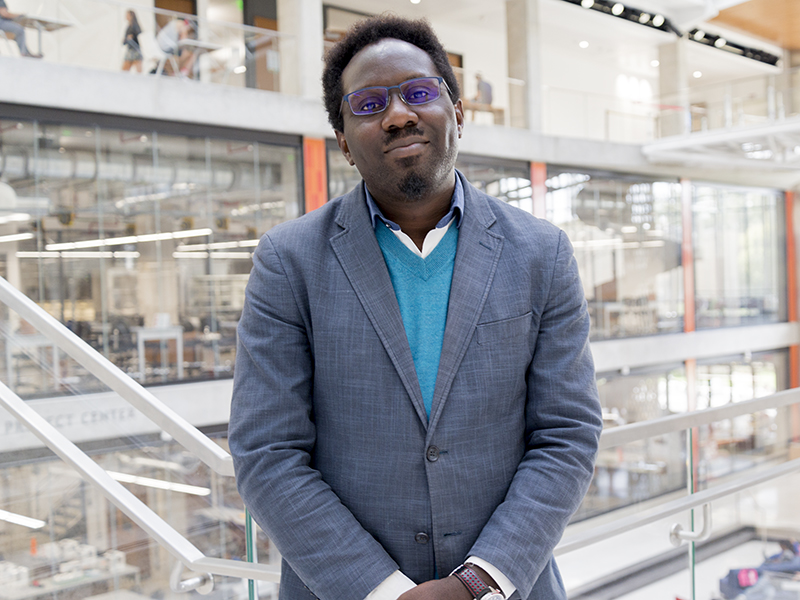
- 512-471-4345
- MER 1.206L, EER 4.886

- 512-471-0262
- ETC 4.154

